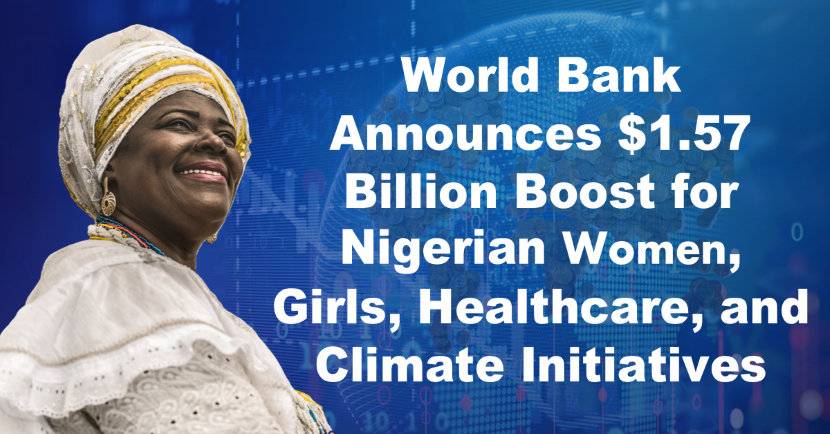Financial Independence for Africa: AU Takes Credit Rating Into Its Own Hands

The African Union (AU) is embarking on a groundbreaking endeavor that could reshape the continent’s economic landscape – the establishment of its own credit rating agency. This ambitious move signifies a major leap towards financial autonomy and self-reliance for Africa. Let’s delve into the transformative potential of this initiative and what it means for the economic future of the continent. Credit rating agencies wield immense influence in the global financial arena, as they evaluate the creditworthiness of governments, corporations, and other entities. These assessments have far-reaching implications, impacting borrowing costs for a wide array of financial instruments, from government bonds to corporate loans. Why a New Credit Rating Agency? Presently, the market is dominated by the “Big Three” credit rating agencies – Moody’s, S&P Global Ratings, and Fitch Ratings. Criticisms have been levied against these agencies for their perceived bias towards Western economies. African nations often find themselves burdened with lower credit ratings than their economic fundamentals might warrant, leading to higher borrowing costs and impeding their developmental efforts. The AU’s credit rating agency aims to rectify this perceived bias. By establishing its own agency, the AU aspires to secure fairer credit ratings for its member states, potentially leading to reduced borrowing costs and greater access to capital for African nations. How Could This Work? While the specifics of the AU’s credit rating agency are still taking shape, experts envision a structure akin to existing credit rating agencies. The agency would likely employ a team of seasoned analysts tasked with evaluating the creditworthiness of African nations based on a comprehensive set of criteria. These criteria would likely encompass factors such as a country’s economic growth, debt levels, and political stability. Undoubtedly, the AU’s credit rating agency will encounter challenges. Building a reputable standing and garnering acceptance from investors will be no small feat. However, the potential rewards are substantial. The Road Ahead The establishment of an African credit rating agency represents a monumental stride forward. It holds the promise of ushering in a new epoch of financial inclusivity and prosperity for the continent. While the success of this initiative remains to be seen, one thing is certain – Africa is seizing control of its economic narrative, charting a course towards greater autonomy and influence on the global stage.
A New Dawn for Ghanaian SMEs: The AU’s Credit Rating Agency

Ghana, a vibrant economic hub in West Africa, has witnessed a steady rise in its Small and Medium-sized Enterprises (SMEs) sector. These businesses form the backbone of the country’s economy, contributing significantly to job creation, innovation, and overall development. However, one of the primary challenges faced by Ghanaian SMEs has been limited access to affordable financing. This is where the African Union’s (AU) newly proposed credit rating agency could play a transformative role. The Current Landscape of Ghanaian SMEs Ghanaian SMEs operate across a diverse range of sectors, from agriculture and manufacturing to services and technology. Despite their vital role, these businesses often struggle to secure loans from traditional financial institutions due to stringent requirements and high interest rates. This limited access to capital can hinder their growth and expansion. The Potential Impact of the AU’s Credit Rating Agency The AU’s credit rating agency could offer Ghanaian SMEs several benefits: Improved Creditworthiness: By providing more accurate and favorable credit ratings for African countries, including Ghana, the agency can help to dispel negative perceptions and attract greater investor interest. This could lead to lower borrowing costs for both the government and businesses. Increased Access to Capital: With a more favorable credit rating, Ghanaian SMEs may find it easier to secure loans from both domestic and international lenders. This increased access to capital can be used to invest in new equipment, expand operations, and hire additional staff. Enhanced Global Competitiveness: A higher credit rating can boost Ghana’s reputation as a stable and attractive investment destination. This can encourage foreign direct investment, which can benefit SMEs through partnerships, technology transfer, and market access. Stimulated Entrepreneurship: A more supportive financial environment can foster a culture of entrepreneurship and innovation. Young entrepreneurs may be more likely to start their own businesses if they have access to affordable financing. Challenges and Considerations While the potential benefits of the AU’s credit rating agency are significant, there are also challenges to consider. The agency will need to establish credibility and build trust among investors. Additionally, it will be important to ensure that the rating methodology is fair, transparent, and reflective of the unique economic conditions in African countries. The establishment of the AU’s credit rating agency represents a promising development for Ghanaian SMEs. By improving the country’s creditworthiness and increasing access to capital, the agency can help to unlock the full potential of these businesses and drive economic growth. As Ghana continues to develop, the impact of this initiative will be closely watched by entrepreneurs, investors, and policymakers alike.
World Bank Funds Nigerian Women with $1.57B

The World Bank’s recent approval of a $1.57 billion lending package is a ray of hope for the country. This critical funding is specifically aimed at addressing some of Nigeria’s most pressing challenges. These include improving the lives of women and girls, strengthening healthcare systems, and tackling climate change. When it comes to empowering women and girls, the specific details of how the funds will be allocated towards supporting them haven’t been made public yet. However, given the stated aim of alleviating the “complex difficulties” faced by this demographic, we can hope that the money will be directed towards initiatives that promote education, healthcare access, and economic opportunities. Investing in women and girls isn’t just the right thing to do; it’s good economics and a step towards creating a more equitable and compassionate society. Nigeria’s healthcare system faces numerous challenges, including limited access to quality care, a shortage of medical professionals, and inadequate infrastructure. A portion of the World Bank’s lending package is likely to be directed towards improving these areas. This Potentially involves funding for new hospitals and clinics, training programs for healthcare workers, and initiatives to improve access to essential medicines and vaccinations. Moreover, the effects of climate change are being felt around the world, and Nigeria is no exception. The country is vulnerable to extreme weather events such as floods and droughts. The World Bank’s funding could be used to support climate-resilient infrastructure projects, promote renewable energy sources, and help communities adapt to the changing climate. The initiative will offer a glimmer of hope in the face of environmental challenges. This significant funding package indeed has the potential to make a real difference in the lives of millions of Nigerians. It’s crucial that the funds are used effectively, transparently, and with empathy to drive positive change and bring hope to those in need. Let’s keep our hearts open to the possibilities this funding can bring to the people of Nigeria.



